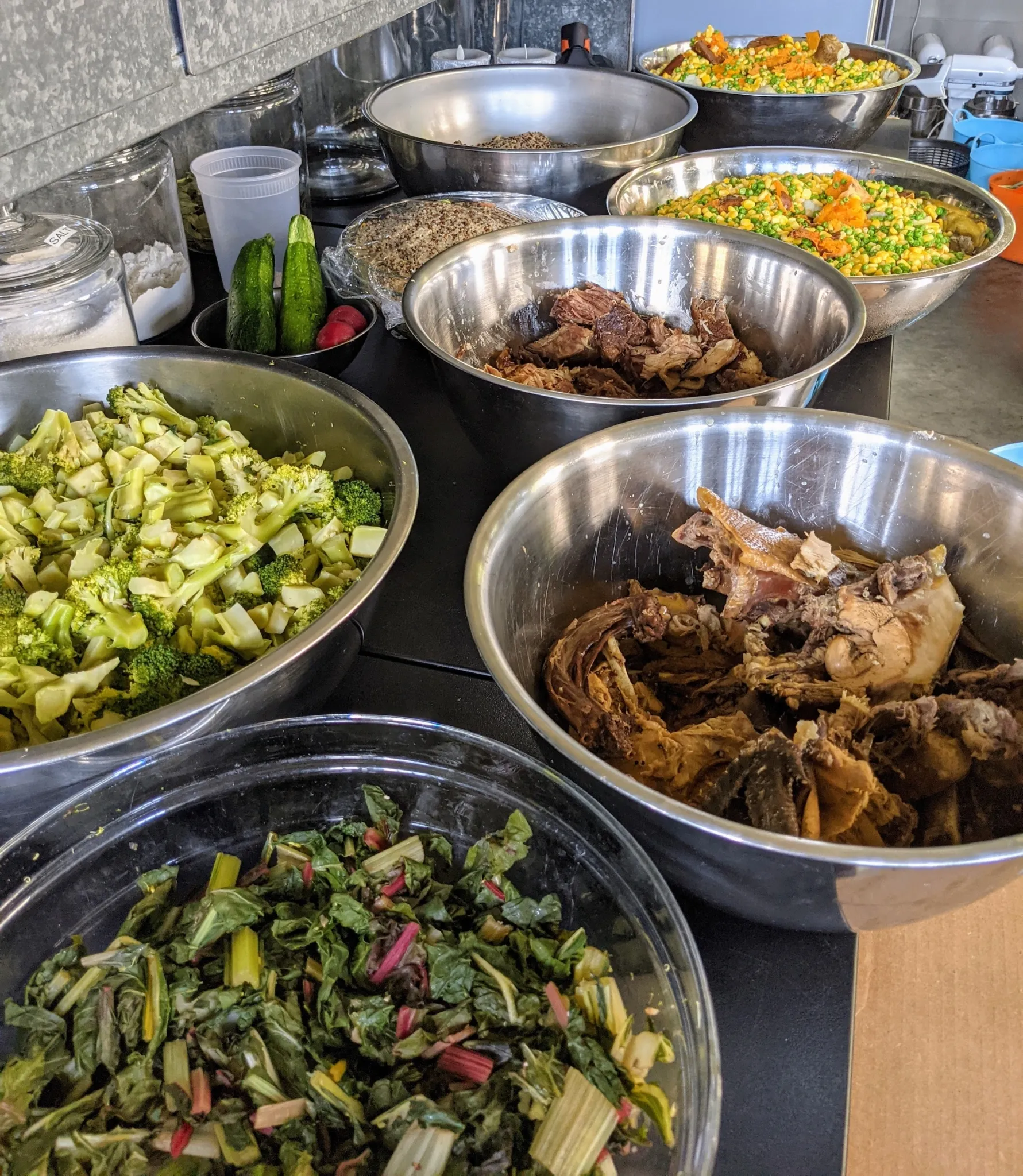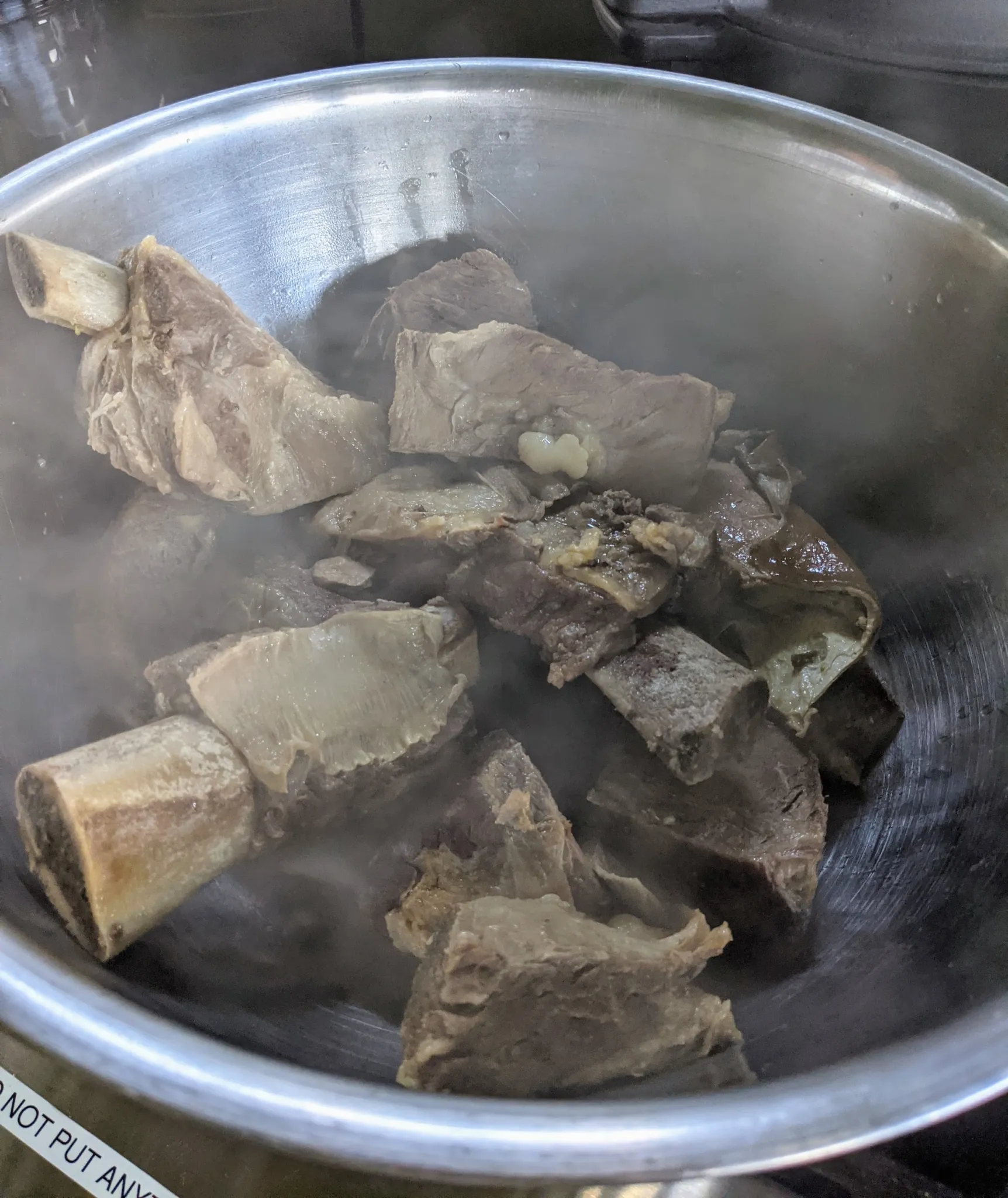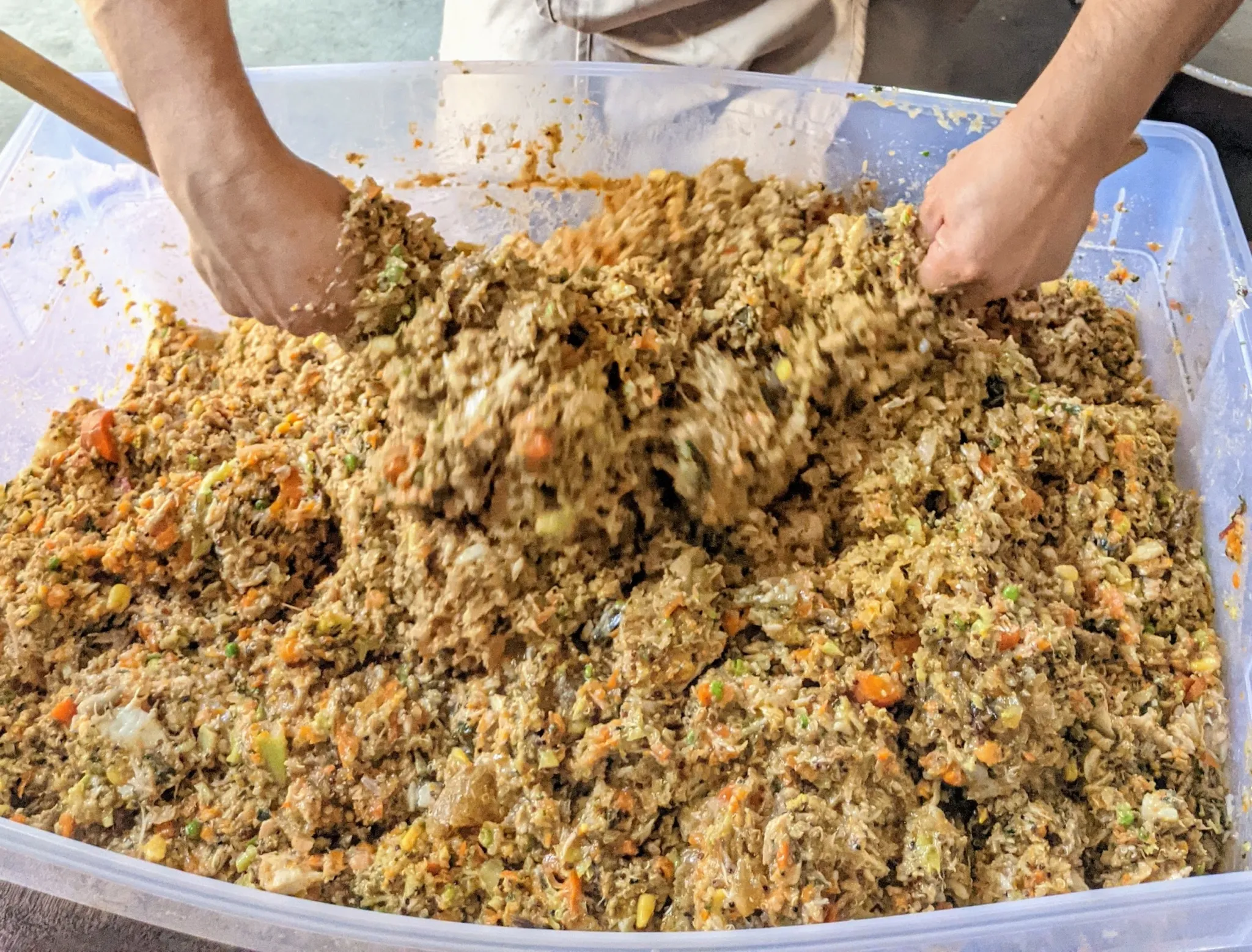Many dedicated pet parents often seek ways to provide the best nutrition for their canine companions, especially those with larger breeds. Cooking homemade meals offers a fantastic opportunity to control ingredients, avoid preservatives, and tailor diets to specific needs. For large dogs, a balanced homemade diet is crucial for supporting their powerful physiques, joint health, and overall vitality. This guide will walk you through creating nutritious and delicious homemade dog food, focusing on considerations for larger breeds, ensuring they receive wholesome, organic, and reputable ingredients.
Why Homemade Food is Excellent for Large Dog Breeds
Opting for homemade dog food presents numerous advantages, particularly when catering to the unique requirements of larger dogs. You gain complete oversight of every ingredient, eliminating hidden additives, artificial colors, and questionable fillers often found in commercial kibble. This control is vital for large breeds prone to certain health issues, allowing you to select high-quality protein sources, complex carbohydrates, and essential fats that support their skeletal structure, muscle mass, and energy levels. Furthermore, a varied diet with fresh, organic ingredients can significantly improve coat health, digestion, and boost their immune system.
Large dogs, like Chow Chows or even larger breeds, benefit immensely from food prepared with their specific dietary needs in mind. For instance, ingredients rich in glucosamine and chondroitin can support joint health, which is a common concern for bigger dogs. Ensuring a proper balance of calcium and phosphorus is also paramount for strong bones without causing developmental issues. While preparing meals at home can be time-consuming, the benefits for your large canine friend’s health and happiness make the effort truly worthwhile.
Essential Ingredients for Your Large Dog’s Diet
Creating a balanced meal for your large dog involves a thoughtful selection of proteins, vegetables, and grains. The goal is to provide a complete nutritional profile that sustains their energy, maintains a healthy weight, and supports long-term health. When considering what food dogs can’t eat, it’s essential to always consult with a veterinarian or canine nutritionist to ensure you avoid harmful ingredients and maintain nutritional balance.
High-Quality Protein Sources
Protein is the cornerstone of any dog’s diet, especially for large breeds that require robust muscle maintenance. Focus on lean, high-quality meats. This recipe incorporates:
- Chicken: A lean protein source, excellent for muscle development.
- Beef: Provides essential amino acids and iron, contributing to strong muscles and energy. Ensure it’s lean and cooked thoroughly.
- Fish (Salmon, Tilefish): Rich in Omega-3 fatty acids, crucial for skin, coat, and joint health, which is particularly beneficial for large dogs. We used a generous amount of salmon and tilefish in this batch, totaling over 20 pounds for multiple large dogs.
All meats should be cooked separately until tender, then deboned and chopped into appropriate, safe sizes. For large dogs, larger chunks might be acceptable, but grinding can prevent selective eating and ensure all nutrients are consumed. Always carefully check for any potentially dangerous bones before processing.
 A kitchen counter laden with bowls of cooked vegetables and meats, ready for dog food preparation.
A kitchen counter laden with bowls of cooked vegetables and meats, ready for dog food preparation.
Nutrient-Rich Vegetables
Vegetables provide essential vitamins, minerals, and fiber, aiding digestion and overall health. Aim for a colorful variety to ensure a broad spectrum of nutrients. Always ensure vegetables are cooked until tender for better digestion.
- Broccoli: Packed with vitamins C and K, and fiber. We used six large heads for a big batch.
- Carrots: Low in calories, high in fiber, and rich in vitamins. Great for dental health when given raw occasionally.
- Green Peas: A good source of B vitamins (Thiamin), phosphorus, and potassium. Cook them quickly to retain nutrients.
- Corn: A source of carbohydrates and fiber, when cooked until tender.
- Yellow Potatoes & Sweet Potatoes: Excellent sources of dietary fiber, vitamins B6, C, and manganese. Sweet potatoes are especially beneficial for digestive health due to their high fiber and beta-carotene content. Remember to consider what food is bad for puppies if you are also feeding younger large breed dogs.
- Butternut Squash: Offers vitamins A and C, fiber, and potassium.
- Swiss Chard: An excellent source of vitamins A and K, C, and magnesium, plus high in dietary fiber. Boil stems until fork-tender as they can be tough.
 Cooked carrots and green peas mixed together in a large bowl, providing essential vitamins and fiber.
Cooked carrots and green peas mixed together in a large bowl, providing essential vitamins and fiber.
Wholesome Grains and Carbohydrates
Carbohydrates provide sustained energy for active large dogs. Quinoa is an excellent choice:
- Quinoa: A gluten-free superfood with high levels of essential amino acids, making it a complete protein. It’s a high-protein grain, so provide it in balanced amounts.
Remember to consider your dog’s activity level and weight when determining carbohydrate portions. Consult a vet if your dog has specific dietary sensitivities or requires a grain-free diet. Additionally, be mindful of what fruits are not good for dogs and keep them out of your homemade recipes.
Step-by-Step Homemade Dog Food Preparation
Preparing a large batch of homemade dog food involves several key stages, from cooking ingredients separately to thorough mixing and proper storage. This systematic approach ensures efficiency and nutritional integrity.
- Cook Vegetables Separately: Steam or boil vegetables like broccoli, carrots, peas, corn, potatoes, sweet potatoes, butternut squash, and Swiss chard until they are fork-tender. This method helps retain nutrients. Place each cooked vegetable in separate large stainless steel bowls.
- Cook Meats Separately: Cook beef, chicken, and fish in separate pots. Once cooked and cooled sufficiently, remove meat from bones and chop into medium to large chunks. Removing any excess fat is also a good practice.
- Prepare Quinoa: Cook quinoa according to package instructions. Ensure it’s fully cooked and cooled before mixing.
- Process Meats (Optional but Recommended): While some large dogs enjoy larger chunks, many prefer ground food for consistency and to prevent selective eating. Use a food processor to pulse cooked meats, ensuring no dangerous bones are present. We processed 10 pounds of salmon and 13 pounds of tilefish, alongside beef and chicken, for our batch, making sure to carefully check for bones.
- Combine All Ingredients: Once all components are cooked and cooled, transfer them into a very large, clean plastic bin. Start with grains like quinoa, then add the mixed carrots, peas, potatoes, squash, and finally the broccoli and processed meats.
- Thoroughly Mix: Enma, our chef, ensures everything is mixed thoroughly to distribute all nutrients evenly throughout the batch. This is a critical step to ensure each meal serving is nutritionally complete.
- Add Supplements (If Recommended): It’s very important that dogs, especially large breeds, get adequate amounts of calcium and omega-three fatty acids. If your veterinarian or canine nutrition expert recommends supplements, add them during this mixing stage. Always talk to a veterinarian or canine nutrition expert before changing a dog’s diet to ensure it’s well-balanced and meets all their specific needs.
 A pot of beef cooking, to be deboned and chopped after cooling for safe consumption.
A pot of beef cooking, to be deboned and chopped after cooling for safe consumption.
Storing and Serving Homemade Dog Food
Proper storage is key to maintaining freshness and convenience. After mixing, portioning the food allows for easy meal preparation throughout the week or month.
- Portion into Containers: Use quart-sized containers for individual meal portions or daily amounts, depending on your large dog’s feeding schedule. For large dogs, you may need multiple containers per day or larger containers.
- Fill for Freezing: If you plan to freeze the food, only fill containers up to the first line to allow room for expansion.
- Label and Store: Mark each lid with the contents and the date it was prepared. Store a portion in your refrigerator for immediate use and freeze the rest. This batch yielded 65 quarts, providing a substantial supply.
- Serving: Most large dogs benefit from two meals a day, once in the morning and once in the evening, which is good for their digestion. Homemade diets can also be mixed with high-quality kibble to ensure a complete and balanced diet, especially if you’re new to home cooking for your pets. Remember to always adjust portion sizes based on your dog’s activity level, age, and weight. If your dog experiences an upset stomach with new food, consider what can dogs eat for upset stomach and consult your vet.
 Enma thoroughly mixing all cooked ingredients, including meats and vegetables, in a large plastic bin.
Enma thoroughly mixing all cooked ingredients, including meats and vegetables, in a large plastic bin.
Tailoring Recipes for Your Large Dog’s Needs
While this recipe provides an excellent foundation, remember that every large dog is unique. Factors such as age, activity level, existing health conditions, and specific breed requirements can influence their nutritional needs. For instance, a highly active working dog will require more calories and protein than a senior large dog. Similarly, a dog with hip dysplasia may benefit from increased levels of Omega-3s and joint-supporting ingredients. Always consult with your veterinarian or a certified canine nutritionist to create a tailored diet plan. They can help you determine precise nutrient ratios, appropriate portion sizes, and any necessary supplements to ensure your large dog thrives on their homemade diet. Being aware of what food does dog can’t eat is also crucial for preventing health issues.
 Enma carefully scooping nutritious homemade dog food into individual quart-sized containers for storage.
Enma carefully scooping nutritious homemade dog food into individual quart-sized containers for storage.
Conclusion
Making homemade food for your large dog is a deeply rewarding endeavor that allows you to provide them with the highest quality, most nutritious meals possible. By carefully selecting organic ingredients, following proper preparation steps, and understanding the specific dietary needs of large breeds, you can significantly contribute to their health, vitality, and longevity. While it requires a commitment of time and effort, the visible improvements in your dog’s coat, energy, and overall well-being make it a personal choice well worth the investment. Always remember to consult with a veterinary professional to ensure your homemade diet is perfectly balanced for your beloved large canine companion.
